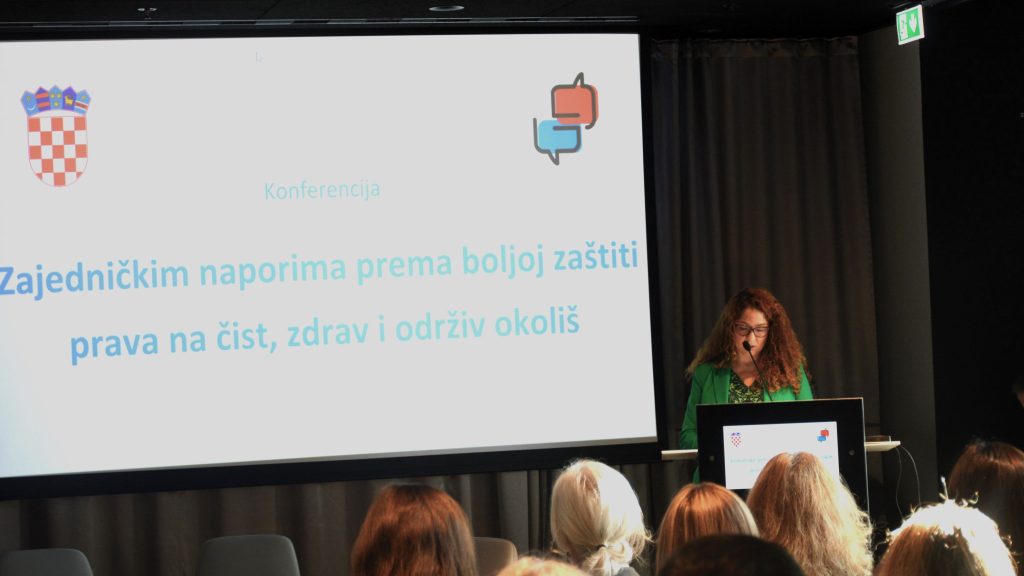Improving the system of protection for forests and forest land strengthens the protection of the human right to a healthy life and a healthy environment, as guaranteed by the Constitution of the Republic of Croatia. In 2022, the United Nations General Assembly recognized the right to a clean, healthy and sustainable environment as a new universal human right.
This is why the Ombudswoman participated in the public consultation on the Draft Proposal of the Act on Amendments to the Forest Act, which was open from 24 May to 23 June 2023. The preservation of nature and the human environment are fundamental constitutional values and must not be subordinated to investment projects in forests and forest land.
The Ombudswoman based her comments and proposals, among other things, on work related to complaints submitted by citizens and civil society organizations concerning threats to and inadequate management of forests, as reported in the 2022 Annual Report of the Ombudswoman. These complaints mainly concern the Sljeme area, but also other forest regions such as Petrova Gora, Žumberak, Bilogora, and others.
Investments – Only If They Do Not Endanger the Right to a Healthy Life and Environment
An ecologically oriented approach to forest management and maintaining good ecological forest status are prerequisites for exercising the right to a healthy life and environment. While implementing investment projects is in the public interest, it is crucial to ensure that they do not endanger this human right – for both present and future generations.
This means that particular caution must be exercised when increasing investment projects and planning the construction of more infrastructure facilities in state-owned forests and forest land outside designated construction zones.
For example, these amendments could significantly accelerate the resolution of property rights and enable further investment projects on former military properties, which is a positive development. These properties became state-owned under the Decree on the Takeover of JNA and SSNO Assets and are no longer used for military purposes. They have become overgrown and are registered in cadastres as forest land.
However, these provisions must be further regulated and explained to prevent potential deforestation or degradation of forests and forest land on former military sites. Therefore, the legislative process should clarify what kinds of investment projects are envisaged and to what extent such projects will preserve existing forest trees and vegetation at the site.
It is also necessary to clarify the provision abolishing the obligation to obtain an opinion from the Ministry of Agriculture in procedures for the exclusion of a property from the forest management area of the Republic of Croatia. The Draft Act does not explain the purpose of the current requirement for such an opinion, nor how it might hinder the realization of investment projects. It should also be clarified what kind of projects are in question, to avoid inconsistent application of this provision and prevent potential harm to forests and forest land resulting from poorly defined investments.
Private Individuals Will Also Be Required to Remove Waste
During the public consultation, the Ombudswoman’s proposal was accepted to require private individuals who dispose of waste in forests to be responsible for its removal. This measure aims to better prevent pollution of forest areas.
Waste disposal in pits and caves is a significant problem, both environmentally and in terms of public health, as it endangers underground water sources. More on this issue can be found in the 2022 Annual Report of the Ombudswoman. While efforts are currently being made, including volunteer cleanup actions, the imposition of a legal obligation on individuals to remove waste they have disposed of would likely reduce such actions and accelerate cleanup. This provision also has the potential to act as a deterrent, but to be effective in this regard, the public must be informed about it. Moreover, in addition to legal amendments, further public education and awareness-raising efforts are necessary regarding the importance of protecting forests and nature in general.
It is also positive that, in line with a recommendation from the Ombudswoman’s 2021 Annual Report, the Ministry of Economy and Sustainable Development proposed that the Environmental Protection and Energy Efficiency Fund direct its annual calls for cleaning speleological sites toward public institutions managing protected areas, and that cleanups be carried out in cooperation with the speleological community, whose members are trained for such activities. It has also been announced that speleological sites will be fenced off as needed, with video surveillance and warning signs against illegal dumping to be installed, which should further contribute to resolving this issue more effectively.
More information on the right to a healthy life and environment is available in the 2022 Annual Report of the Ombudswoman, in earlier annual reports, and in the Special Report on the Right to a Healthy Life and Climate Change in the Republic of Croatia (2013–2020),
adopted by the Croatian Parliament in June 2021.





